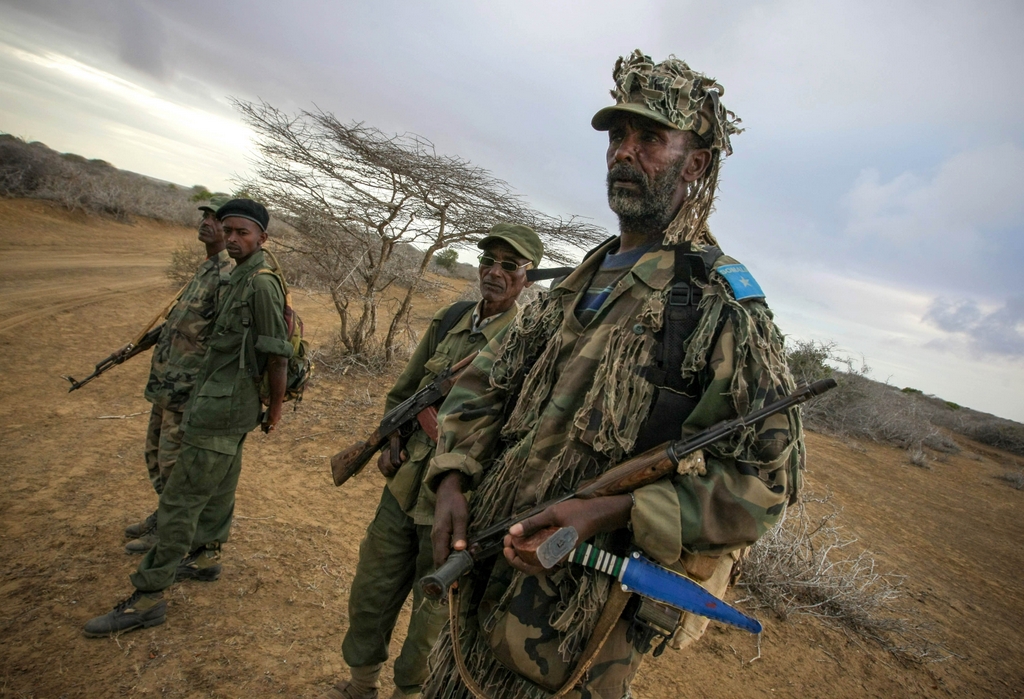MOGADISHU (HAN) July 4.2016. Public Diplomacy & Regional Security News.By SIMON ALLISON. By general consensus, the African Union peacekeeping mission in Somalia is about the only thing keeping that country from falling apart. Except that the mission is struggling to keep itself together, with internal tensions threatening to explode ahead of September’s make or break presidential election.
The significance of the African Union Mission in Somalia (Amisom) to that country’s immediate future cannot be understated. Which is why reports of divisions within its ranks make for disturbing reading.
Interview with Harun Maruf on Somali govt planned Military offensive
“As the only force that can counter al-Shabab and hold territory [Amisom] is, by far, the most effective institution in Somalia and is the biggest driver of stability. The government can and should depend on Amisom to secure the election,” wrote researcher Alex Dick-Godfrey for the Council on Foreign Relations.
With a presidential election planned for September this year, the fragile Federal Government of Somalia is depending on Amisom to keep the peace. As the largest and most professional armed force in the country – with upwards of 22,000 troops – it alone has the firepower necessary to guarantee stability in the run-up to the vote. Or try, at least.
But Amisom itself isn’t looking too stable these days. Riven by internal divisions, weakened by heavy losses from al-Shabaab attacks, and struggling to cope with funding cuts, the mission is beginning to show signs of strain.
A litany of public squabbles began with the European Union’s announcement in February that it would cut funding by about 20%, a consequence of budget pressures at home and a perceived lack of accountability from Amisom. The EU is the largest single donor to the mission, so this had a serious impact on both cash flow and salaries. Some soldiers went unpaid for months, while others had their monthly pay reduced – hardly a recipe for contented troops.
Kenya, with 3,700 soldiers in Somalia, was the first to formally register its dissatisfaction with the new arrangement, telling the UN Security Council that it was considering withdrawing its troops. According to the Security Council Report: “As one of Amisom’s major troop contributing countries, Kenya is questioning whether it was worth the huge cost. [President Uhuru] Kenyatta asserted that Amisom was not getting the support it needed in terms of resources and equipment, and argued that the UN needed to take on a much greater role. Referring to the recent cuts in EU support, he said it was not Kenya’s role to close the funding gap and the logical conclusion would be for Kenya to pull out its troops.”
Uganda, the largest troop contributor with 6,200 soldiers, followed that up in June with its own threat to withdraw early. Uganda unilaterally announced that it would withdraw all its troops by December 2017, a full year ahead of schedule. The budget cuts played a role in this decision, but so too did a general sense that Somalia was no longer very high on the international community’s agenda. “There was a realisation from all players – the troop-contributing countries plus the partners – that at some point some fatigue is going to set in, be it financial fatigue from the EU and other partners financing the mission… The message we also want to send to our Somali friends and brothers is that Amisom is not forever,” said army boss General Katumba Wamala.
But while the international community is desperate for Kenya and Uganda to stay in Somalia, they’re less enthusiastic about Burundi’s continued participation. In March, the European Union revealed plans to eliminate payments to Burundi’s government, which total about $13-million a year, as a means to pressure President Pierre Nkurunziza into meaningful talks with opposition groups (payments to the Burundian soldiers in active service in Somalia will continue, but will no longer be channelled through the government). At least 400 people have been killed in Burundi since last April when Nkurunziza announced plans to run for a third term in office (which he subsequently got).
Amisom’s problems go beyond money. In the last year, each of the major troop contributing countries has suffered a major loss to al-Shabaab fighters. After nearly a decade of Amisom peacekeeping, the Islamist militant group remains alive and well – bringing the peacekeeping mission’s tactics and strategy into question. It hasn’t helped that Amisom has been exceptionally poor about communicating the scale of its defeats: Kenya, for example, still hasn’t admitted to the estimated 141 deaths that its contingent incurred at the Battle of El Adde in January.
There have also been allegations that Amisom has been involved in atrocities itself, such as the shooting of a wedding party in Merka which allegedly claimed at least six civilian lives. Other credible allegations suggest that elements within Amisom are actively colluding with al-Shabaab in lucrative sugar and charcoal smuggling rings.
None of this adds up to an environment conducive to effective peacekeeping. And as Amisom’s effectiveness deteriorates, so too will Somalia’s fragile stability – which is not good news for anyone with a stake in the country. Not for the United States, which relies on Amisom as a bulwark against terrorism; not for the African Union, which has staked its reputation for conflict management on a successful outcome; not for the international community, which needs Amisom to protect the elections it has organised, and, most of all, not for Somalis, who know that right now Amisom, for all its faults, is all that stands between them and another major civil war.

Leave a Reply